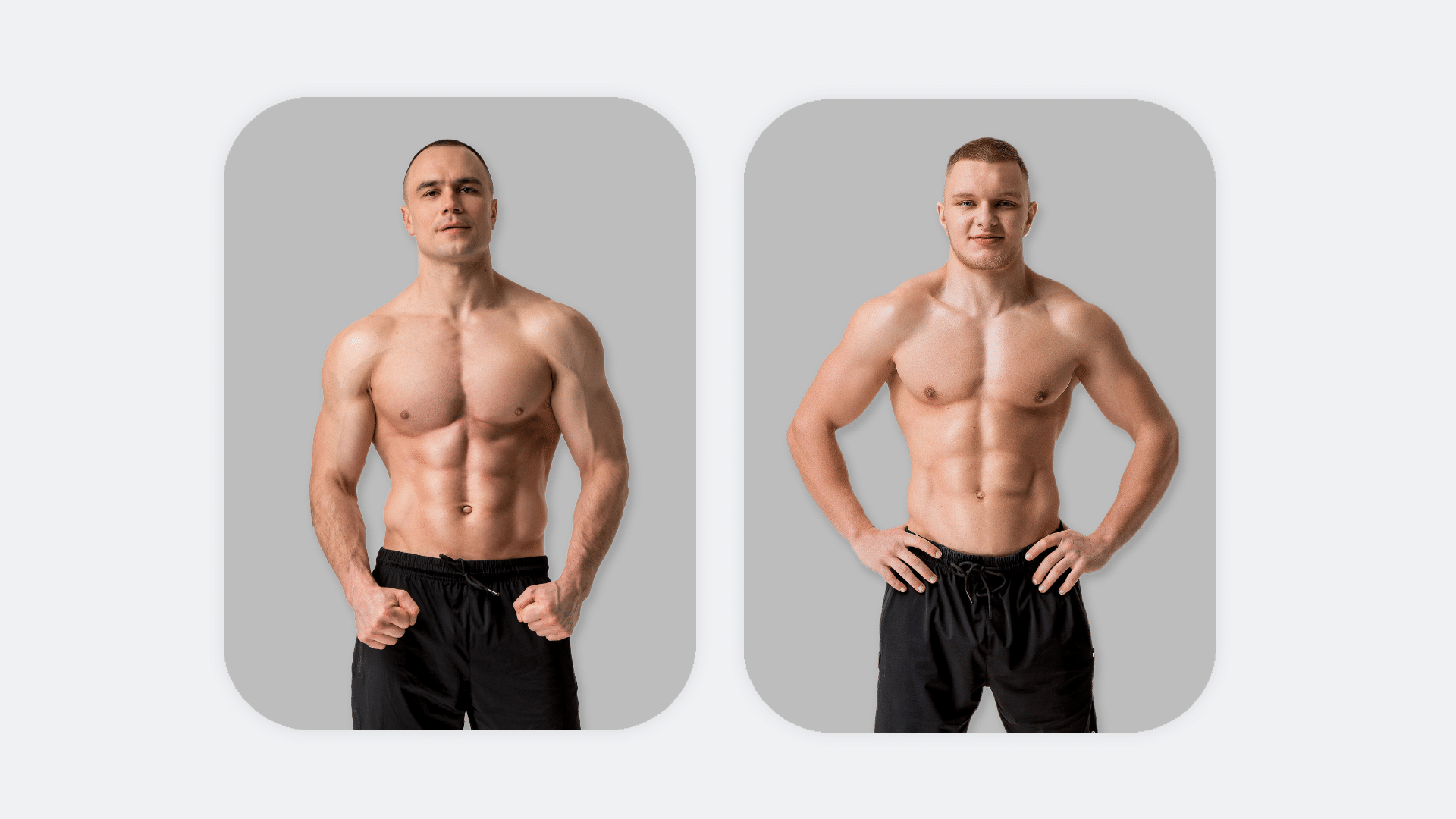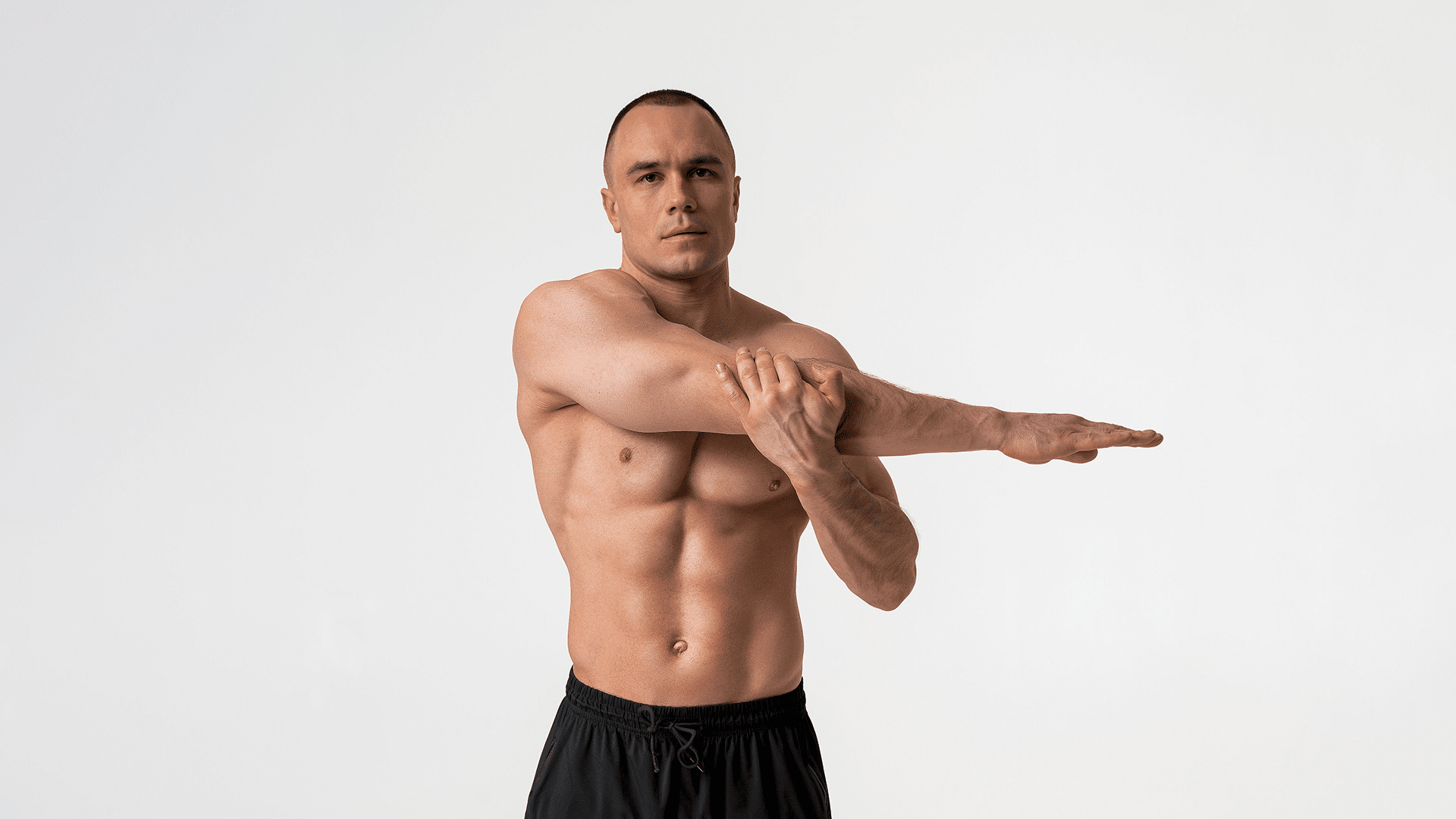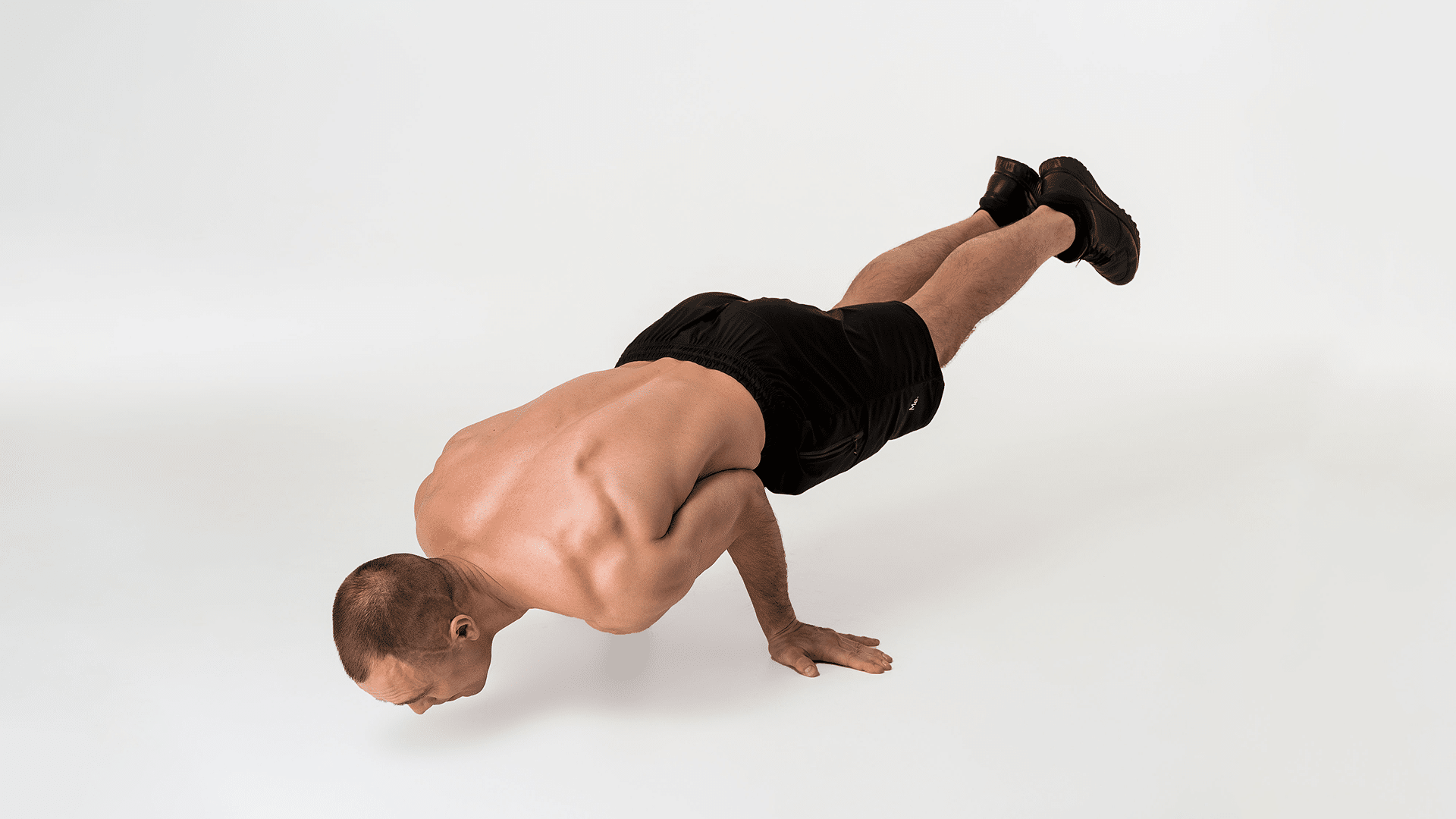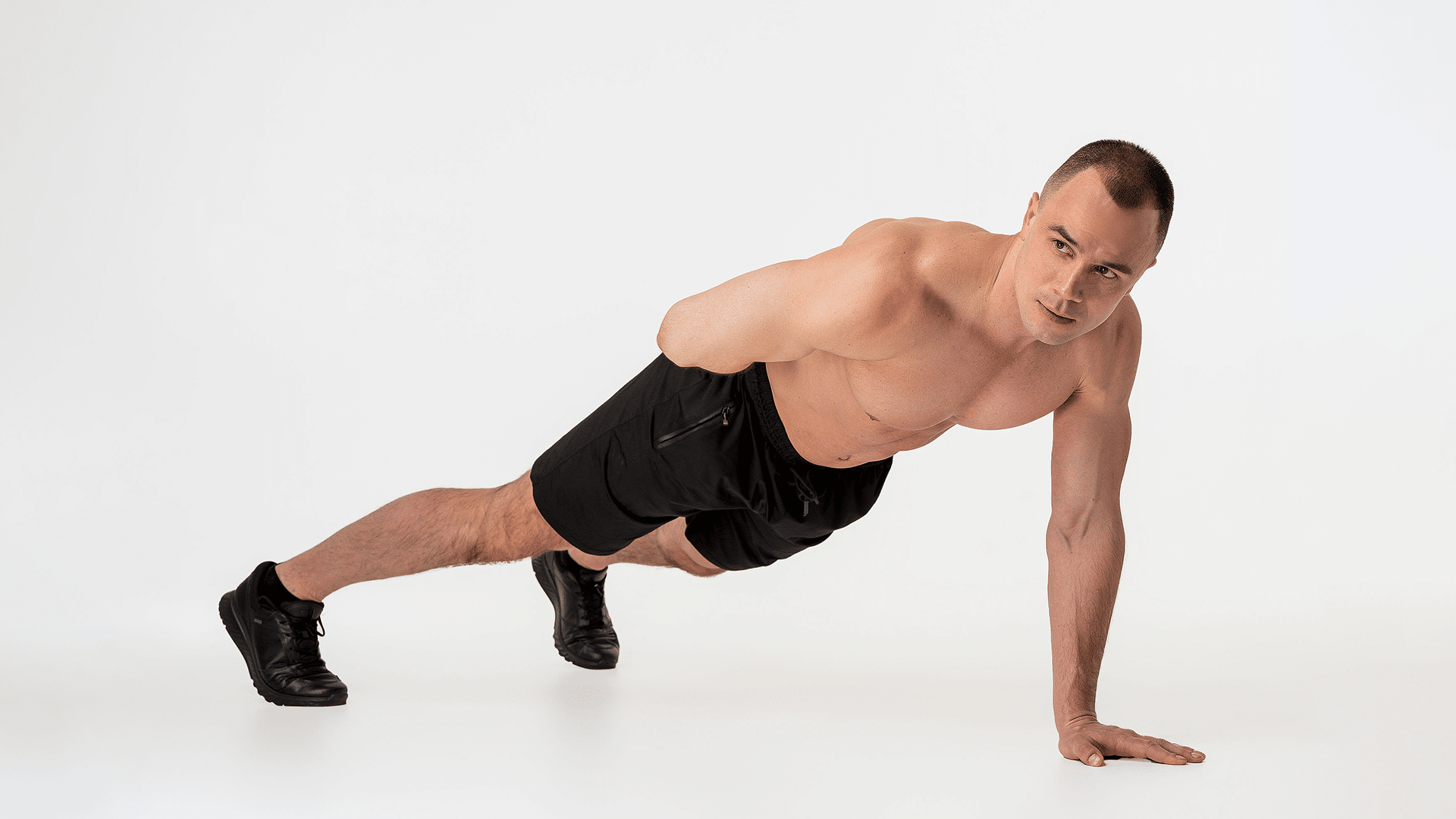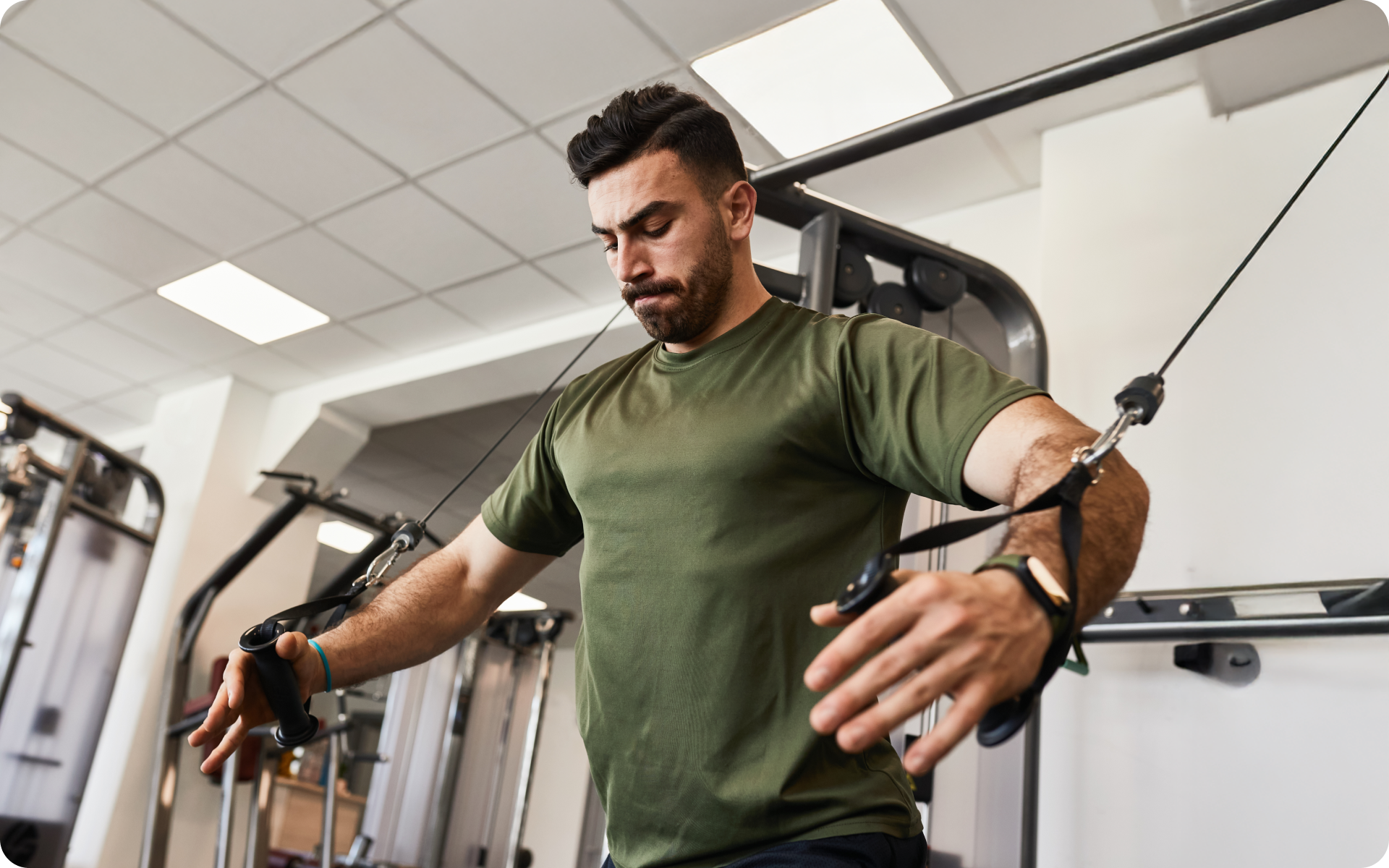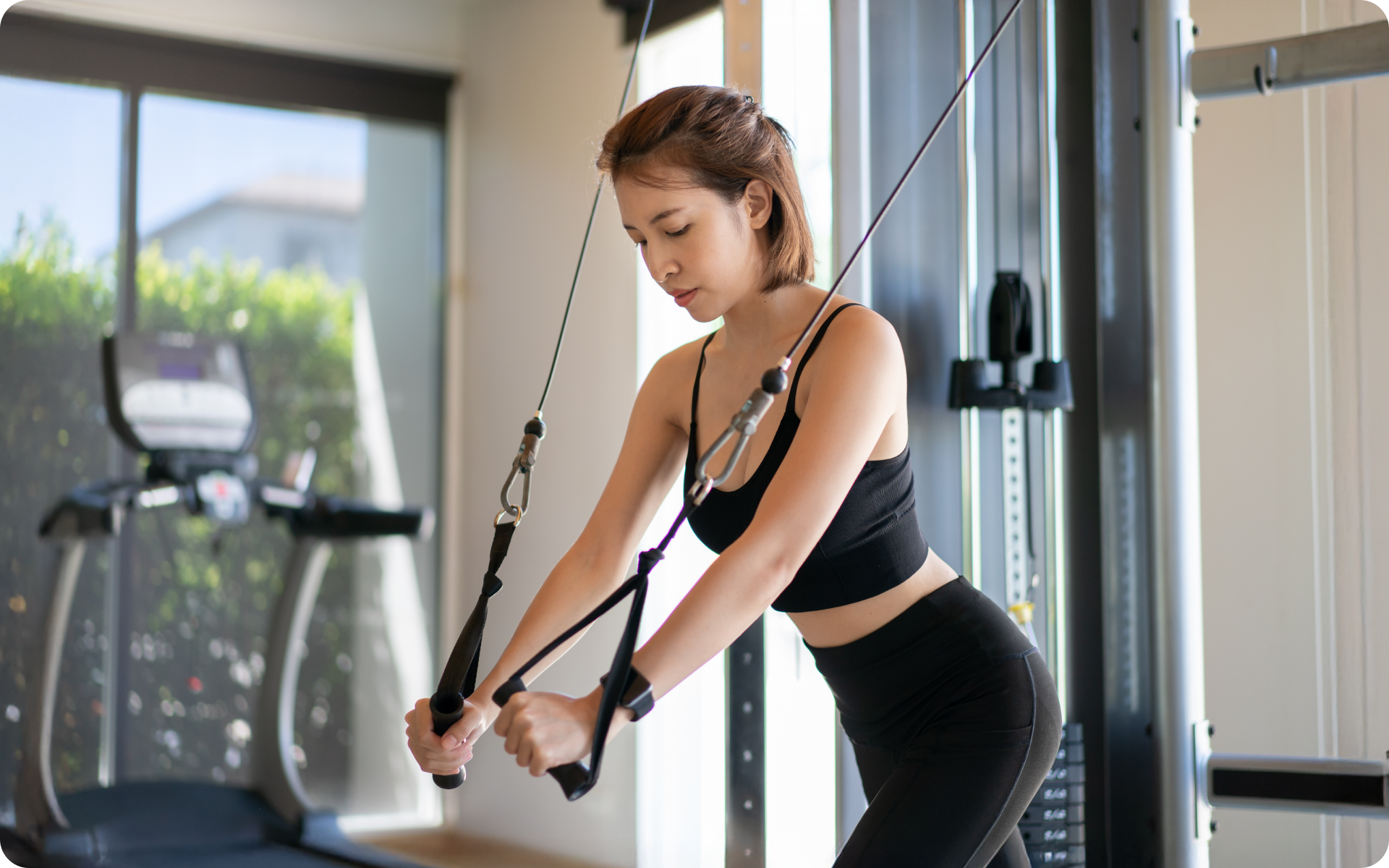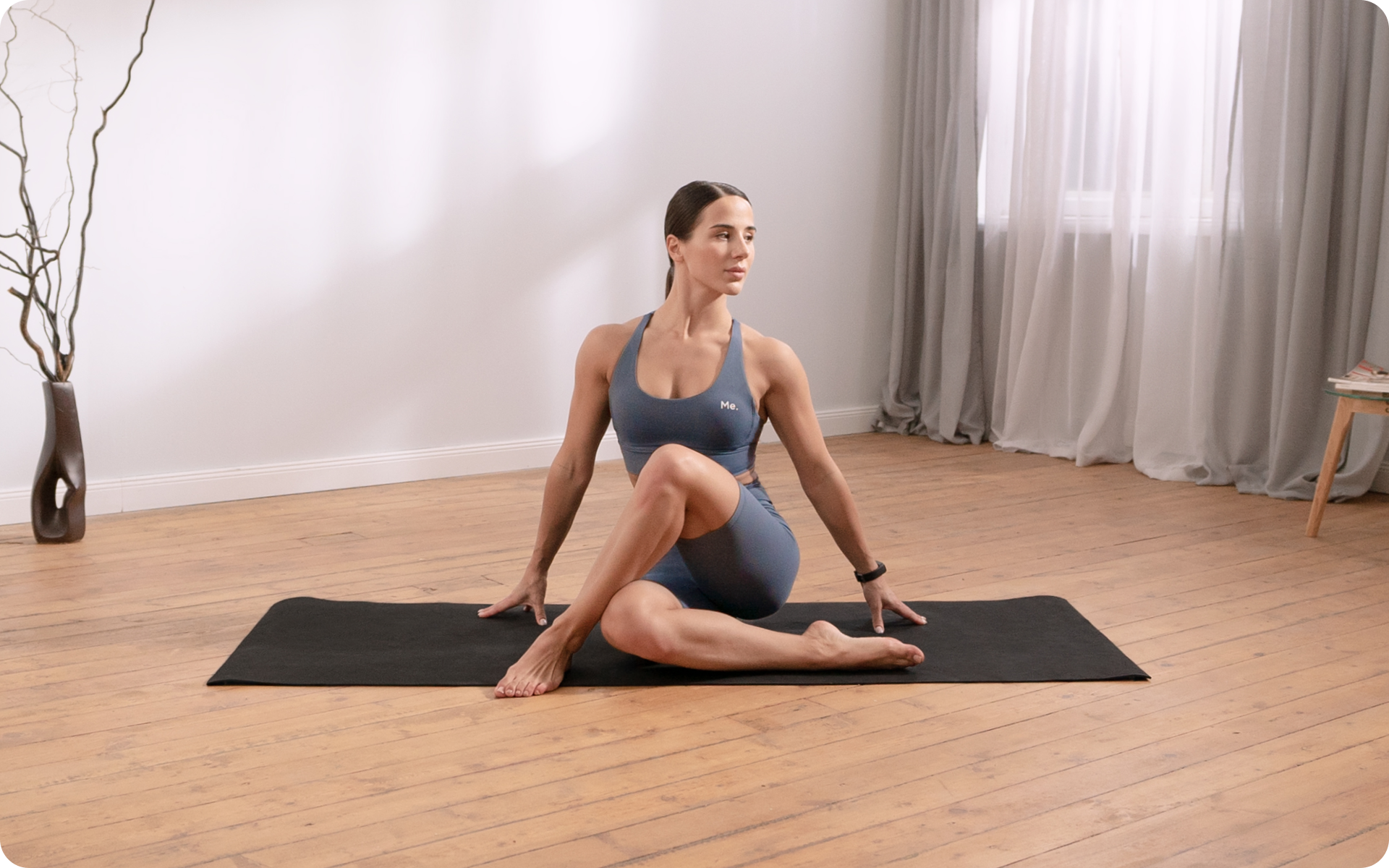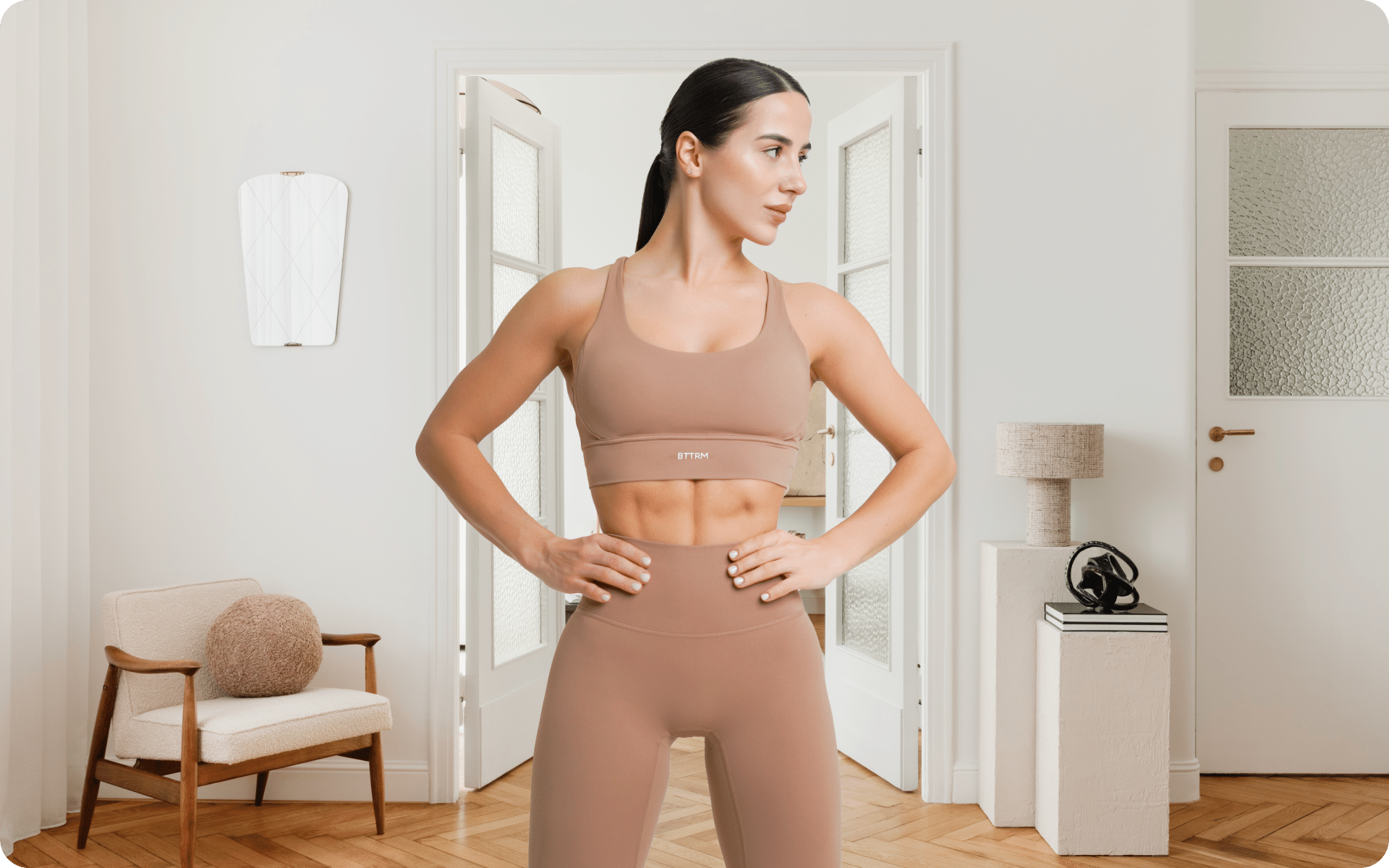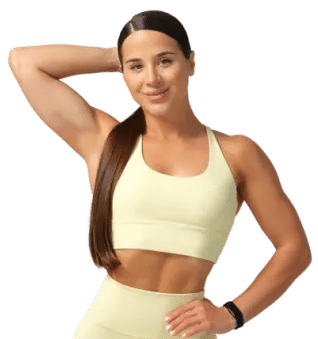We all have our own reasons for working out. Goals may range from being health-motivated to just having a beach-ready body for summer.
However, what remains true for everyone is that, at times, working out can be very frustrating, particularly when you hit that plateau phase.
In this article, we’ll tell you why you need a compound workout routine and how you can safely pull it off.
What Are Compound Exercises?
Compound exercises are those that engage multiple major muscle groups at the same time. They are considered to be one of the fastest ways of making progress in the gym.
Some studies have indicated that compound exercises are the fastest avenue for building muscle mass and gaining muscle strength (2). Isolation exercises generally involve the activation of only one joint or muscle group at a time, but compound exercises utilize several joints, in addition to major muscle groups with free weights.
The benefits of compound exercises don’t stop at just increasing muscle mass and muscle strength. There are five other reasons why you should add compound exercises to your workout routine.
Reasons why BetterMe is a safe bet: a wide range of calorie-blasting workouts, finger-licking recipes, 24/7 support, challenges that’ll keep you on your best game, and that just scratches the surface! Start using our app and watch the magic happen.
Benefits of Compound Exercises
Starting a compound workout routine can be good for your health in more ways than you think.
Here’s how:
Improves Intermuscular Coordination
Intermuscular coordination means the interaction of several muscles or muscle groups around your joints. For example, it can describe your gluteal complex (gluteus maximus, medius, and minimus) that controls the motion of your hips.
Compound exercises such as lunges or squats that move your hips in all three planes can have a positive effect on how your muscles work together (1).
Time-Efficient
This is probably one of the biggest benefits of compound exercises. It’s simple – adding compound exercises to your workout routine means you get more done in less time.
So if you have a packed schedule, this may be exactly what you need to achieve your fitness goals.
Provides Cardiovascular Training Benefits
Cardiovascular exercises are meant to increase the efficiency of your heart functioning as a pump. Activities such as cycling and running together with others that engage significant muscle tissues are the “traditional” way of achieving this.
However, sitting in a leg extension machine while doing knee extensions or bicep curls only engages a few muscle tissues. As a result, these exercises are more suitable for focusing on isolated strength (1).
At the same time, moves such as medicine ball chops, burpees, and squats to shoulder presses are compound exercises that engage the entire body. This exerts some extra challenge on your heart to pump the blood for fueling and activating your muscles (1).
Provides Dynamic Flexibility
Whenever flexibility is mentioned, the first thing that comes to mind is often static stretching.
Holding muscles in a lengthened position is generally effective in reducing muscle tension (think of yoga poses). However, the downside is that your neurological activity will also be reduced, which is not recommended before dynamic activities (1).
Workouts involving working through an active range of motion are considered to be a form of dynamic stretching. This means they move your muscles through a certain range, usually under load, which can help increase flexibility.
Improves Movement Efficiency
Have you ever noticed that bodybuilders appear to move in a stiff and restricted manner? This can be due to their focus on training muscle groups separately, which can reduce the efficiency of muscle groups working together in a coordinated manner. Compound exercises can help develop muscular coordination and promote effective motor unit firing to enhance muscle contractions. As a result, the timing of muscle contractions becomes more efficient (1).
Adding compound exercises to your workout routine can go a long way to developing movement patterns and promoting balance. This can lead to an increase in your overall quality of life (3).
Burns More Calories
As compound exercises engage multiple muscle groups at once, more energy will be required to perform them. This means exercises that engage more muscle tissues require more oxygen, which ultimately increases the amount of energy you expend, resulting in a higher calorie burn. (1). Our compound exercises for weight loss article explains this in detail.
What Is the Best Compound Workout Routine?
The answer to this question is dependent on several factors. For example, what is your fitness level? Are you planning to work out at home or the gym? In this section, we look at various 3-day compound workout routines to help you pick what works best for you.
Before we get to the good stuff, there are some important safety precautions you should take to avoid unnecessary injuries, including:
Mastering the Right Technique
Always keep in mind that you’re engaging multiple muscles simultaneously. Therefore, it’s essential that you master the right form and technique to avoid straining any of the muscles that are being worked on.
Starting Slow and Listening to Your Body
Rushing through the entire process can prove both inefficient and counterproductive. You may also end up overtraining without making much progress and increase your risk of injury.
Finally, always pay attention to your body. If you feel fatigued or increasingly uncomfortable, stop and take a break.
Remembering to Warm Up and Cool Down
Take about 5 to 10 minutes before and after every workout session to warm up and cool down. Light cardio activities, such as walking, get your muscles ready and may help reduce delayed onset muscle soreness (11).
Read more: 16 Benefits of Full-Body Workout: What Can a Compound, Full-Body Workout Do for You?
Best 3-day Compound Workout Routine
If your goal is to build muscle strength and mass, then you’re in the right place. This 3-day compound has been crafted to work on both your upper and lower body each time you work out. Read how this can be done at home in our at-home workouts for moms blog.
The Routine
Here’s what your week will look like when you follow a 3-day full-body compound workout routine for mass and strength gains:
- Monday: chest, triceps, and back
- Tuesday: rest and recovery or light cardio
- Wednesday: chest, back, and biceps
- Thursday: rest and recovery or light cardio
- Friday: legs and shoulders
- Saturday: rest and recovery or light cardio
- Sunday: rest
It’s important to note that your engagement in cardio activities should be dependent on your fitness level. It may be best to allow yourself to recover for 1 to 3 minutes between each set.
Day 1: Chest, Triceps, And Back Muscles
Pull-ups: 4 sets of 5 – 8 reps
- Stand under a pull-up bar, with your hands shoulder-width apart.
- Reach up and grip the bar with your palms facing forward.
- Extend your arms fully, allowing your body to hang.
- Pull your body upward until your chin is above the bar.
- Lower your body slowly back to the starting position.
- Repeat for the desired number of reps and sets.
Barbell bench press: 4 sets of 12, 10, 8, and 6 reps
- Lie on your back on a flat bench.
- Grip the barbell with your hands just wider than shoulder-width apart.
- Lift the bar off the rack and lower it toward your chest.
- Push the bar back up until your arms are fully extended.
- Repeat for the desired number of reps and sets.
Standing barbell overhead press: 4 sets of 12, 10, 8, and 6 reps
- Stand with your feet shoulder-width apart.
- Hold the barbell at your upper chest, with your hands shoulder-width apart.
- Engage your core and press the bar upward until your arms are fully extended.
- Lower the bar slowly back to your chest.
- Repeat for the desired number of reps and sets.
Face pulls: 4 sets of 12 reps
- Attach a rope to a high pulley.
- Grasp the rope with both hands, palms facing each other.
- Stand back so your arms are fully extended.
- Pull the rope toward your face, keeping your elbows high.
- Extend your arms back out.
- Repeat for the desired number of reps and sets.
Triceps dips: 2 sets of 12 to 15 reps each
- Position your hands shoulder-width apart on a bench or chair.
- Extend your legs out in front of you.
- Lower your body toward the floor, bending your elbows.
- Push yourself back up to the starting position.
- Repeat for the desired number of reps and sets.
BetterMe app will provide you with a host of fat-frying fitness routines that’ll scare the extra pounds away and turn your body into a masterpiece! Get your life moving in the right direction with BetterMe!
Day 2: Chest, Back, And Biceps
Deadlifts: 4 sets of 5 reps each
- Stand with your feet shoulder-width apart and the barbell over your midfoot.
- Bend at your hips and knees to grab the bar with an overhand grip.
- Keep your back straight and lats engaged and lift the bar by pushing through the floor with your feet to stand up.
- Push your hips forward and pull your shoulders back.
- Lower the bar to the floor and repeat for the desired number of reps and sets.
Parallel dips: 5 sets of 5-10 reps
- Grasp the parallel bars and lift yourself until you’re in the starting position with your arms locked out.
- Lower your body while leaning forward and flaring your elbows out.
- Once your shoulders are below your elbows, push yourself back up to the starting position.
- Repeat for the desired number of reps and sets.
Incline DB bench press: 4 sets of 12, 10, 8, and 6 reps
- Lie back on an incline bench with a dumbbell in each hand.
- Hold the weights at shoulder-width with your palms facing your feet.
- Push the dumbbells up until your arms are fully extended.
- Lower them slowly back to the starting position.
- Repeat for the desired number of reps and sets.
Dumbbell row: 4 sets of 12, 10, 8, and 6 reps
- Stand with a dumbbell in each hand and bend over at the waist.
- Keep your back straight and pull the weights up to your chest.
- Lower the weights slowly back to the starting position.
- Repeat for the desired number of reps and sets.
Plank: Hold for about 60 seconds
- Get into a push-up position, but rest your weight on your forearms rather than your hands.
- Keep your body in a straight line from head to toe.
- Engage your core and hold this position for approximately 60 seconds or as long as you’re able to maintain proper form.
Standing barbell curl: 3 sets of 8 reps each
- Stand up straight with a barbell in your hands at arm’s length. Your grip should be shoulder-width, and the palms of your hands should face forward.
- Keeping your upper arms still, curl the weights while contracting your biceps as you breathe out. Only your forearms should move.
- Continue the movement until your biceps are fully contracted and the bar is at shoulder level.
- Slowly start to bring the bar back to the starting position as you breathe in.
- Repeat for the desired number of reps and sets.
Day 3: Legs And Shoulders
Lunges: 3 sets of 10 to 12 reps each
- Stand straight with your feet hip-width apart.
- Take a step forward with your right foot and lower yourself into a lunge, so both knees are bent at a 90-degree angle or a comfortable depth.
- Push back up to the starting position and repeat on the other side.
- Continue alternating for the desired number of reps and sets.
Squats: 3 sets of 8 to 10 reps each
- Stand with your feet shoulder-width apart.
- Initiate the movement by pushing your hips back while allowing your knees to drive forward over your mid-foot. Aim to get your thighs parallel to the floor, with your weight evenly distributed through your whole foot.
- Push through your feet and legs to stand up and return to the starting position.
- Repeat for the desired number of reps and sets.
Seated lateral raises: 3 sets of 10 to 12 reps each
- Sit at the edge of a bench with dumbbells by your sides. Keep your back straight.
- Lift the dumbbells to the side until your arms are parallel to the ground.
- Lower the dumbbells back down to your side.
- Repeat for the desired number of reps and sets.
Barbell drag curl: 4 sets of 12, 10, 8, and 6 reps
- Stand up straight with a barbell in your hands at arm’s length. Your grip should be shoulder-width and the palms of your hands should be facing forward.
- Keeping your elbows still, curl the bar as close to your body as possible while contracting your biceps.
- Slowly lower the bar back to the starting position.
- Repeat for the desired number of reps and sets.
Decline bench press: 4 sets of 12, 10, 8, and 6 reps
- Secure your legs at the end of the decline bench and slowly lie back.
- Grab the bar with a shoulder-width grip.
- Lower the bar slowly to your lower chest.
- Push the bar back to the starting position as you breathe out.
- Repeat for the desired number of reps and sets.
Read more: 16 Benefits of Full-Body Workout: What Can a Compound, Full-Body Workout Do for You?
Foods to Eat During a 3-day Compound Workout Routine
To get the best results from this workout routine, you must be just as careful about what you eat. This is because the food you eat can either hinder or supplement your fitness goals.
Firstly, it’s important to ensure you consume enough protein for your individual requirements. Protein helps with muscle tissue repair after strenuous workout sessions and is essential for muscle growth (5).
Next on the list is carbs. They are the body’s primary source of fuel for workouts and muscle building. Certain carbohydrate sources can also provide essential micronutrients such as zinc, iron, and magnesium that help with cell growth and development (10).
Fiber is also just as important in the grand scheme of things. It is satiating and takes longer to digest, which means that it will make you feel full for longer periods. This means you’re unlikely to snack on junk food that can end up undoing every gain you’ve made (3).
Finally, fruits and vegetables are also important. They provide essential vitamins, minerals, and nutrients such as potassium and magnesium that help regulate contractions during heavy lifting (6).
Here is a 7-day meal plan you can try out:
Monday
- Breakfast: 3 scrambled eggs, 2 slices of wholemeal toast, ¼ avocado, and a large handful of spinach
- Snack: 1 small banana and a protein shake with 30 g whey protein powder
- Lunch: 3 salt and vinegar rice cakes, tuna mayonnaise sandwich, and an orange
- Snack: 25 g Brazil nuts
- Dinner: grilled paprika chicken and vegetables with 200 g lightly buttered new potatoes.
- Snack: 30 g whey protein powder mixed with 100 g low-fat Greek yogurt with a small sliced frozen banana
Calories: 2,510 Protein: 242 g Carbs: 197 g Fat: 86 g
Tuesday
- Breakfast: cheese, mushroom, and onion omelet with a slice of lightly buttered wholemeal toast
- Snack: 30 g peanut butter and an apple
- Lunch: sandwich with 2 slices of ricotta between 2 slices of wholemeal bread with sliced tomatoes and an orange
- Snack: 50 g beef jerky
- Dinner: grilled salmon and vegetables
- Snack: 30 g whey protein powder mixed with 150 g low-fat Greek yogurt with 100 g frozen berries
Calories: 2,271 Protein: 169 g Carbs: 189 g Fat: 106 g
Wednesday
- Breakfast: cheese omelet served with a large handful of spinach, tomatoes, some lentils, and a slice of lightly buttered toast
- Snack: protein shake containing 30 g whey powder and 200 ml skimmed milk, served with a small banana
- Lunch: salmon and avocado salad
- Snack: 25 g almonds
- Dinner: 1 serving of honey and mustard chicken
- Snack: 30 g whey protein powder combined with 150 g low-fat Greek yogurt and a handful of frozen grapes
Calories: 2,515 Protein: 223 g Carbs: 194 g Fat: 92 g
Thursday
- Breakfast: 3 scrambled eggs served with 70 g smoked salmon and a handful of cherry tomatoes, sliced red pepper, a large handful of spinach, and 25 g Brazil nuts
- Snack: protein shake with 30 g whey protein powder and 200 ml semi-skimmed milk served with 1 small banana
- Lunch: 200 g chicken, tomato, and avocado sandwich on wholemeal bread served with 3 salt and vinegar rice cakes
- Snack: 50 g beef jerky
- Dinner: large turkey burgers
- Snack: 30 g whey protein powder combined with 100 g low-fat Greek yogurt served with 1 small sliced frozen banana
Calories: 2,482 Protein: 238 g Carbs: 142 g Fat: 109 g
Friday
- Breakfast: 3 soft-boiled eggs served with lightly buttered wholemeal toast and a small handful of nuts
- Snack: 30 g peanut butter and 1 apple
- Lunch: tuna nicoise salad
- Snack: 25 g cashew nuts
- Dinner: power prawn curry
- Snack: 50 g dark chocolate
Calories: 2,364 Protein: 181 g Carbs: 203 g Fat: 92 g
Saturday
- Breakfast: 4 scrambled eggs served with ½ avocado mashed and spread over wholemeal toast and a handful of cherry tomatoes
- Snack: smoothie with 1 blended apple, 1 large handful spinach, 100 g frozen berries, 10 g clear honey, 1 carrot, ½ teaspoon ginger, and 100 ml water
- Lunch: tuna melt on 2 slices of wholemeal bread
- Snack: 30 g whey protein powder combined with 150 g low-fat Greek yogurt served with 1 handful frozen grapes
- Dinner: 1 pot pork stew served with 100 g of potatoes and broccoli
- Snack: 1 small bag salted popcorn
Calories: 2,454 Protein: 230 g Carbs: 161 g Fat: 99 g
Sunday
- Breakfast: chia seed power pot served with 25 g Brazil nuts
- Snack: 30 g peanut butter and 1 apple
- Lunch: 250 g roasted beef, carrots, green beans, 200 g roast potatoes, broccoli served with some gravy
- Snack: 20 g cheddar cheese served with a handful of grapes
- Dinner: roast beef sandwich
- Snack: 30 g whey protein powder combined with 150 g low-fat Greek yogurt and 10 g frozen berries
Calories: 2,394 Protein: 197 g Carbs: 172 g Fat: 103 g
3-day Compound Workout Routine Beginners Tips
Perhaps this is your first time trying out this type of workout program and you’re wondering how you’ll pull through it. There’s no need to worry and here are four essential tips that will make your journey easier.
Pick the Right Amount of Weight
To make any progress, you’ll need to pick weights that will challenge your muscles (8).
However, you should avoid going for weights that are too heavy or too light. Here’s a good rule of thumb, aim for 1-3 sets of 8-12 repetitions for each muscle group and aim for 2 – 3 sessions per week. You should choose the weight based on the above values.
Get Enough Sleep
Sleep is particularly important when it comes to working out and gaining muscle.
Ensure you get about 7 to 9 hours of quality sleep to help your body maximize recovery and muscle growth (7).
If you’re struggling to get quality sleep time, you can try:
- Incorporating relaxation exercises such as yoga into your routine.
- Changing your sleep environment. Try a cooler, warmer, or darker setting based on your preference.
- Avoiding training close to bedtime.
- Limiting your screen time in the evening.
- Avoiding eating too close to bedtime.
Don’t Overtrain
Training too much can be counterproductive and can end up undoing all the progress you’ve made. In addition, you’ll increase your risk of injury as you’ll be fatigued and won’t be able to focus on the right form.
That being said, ensure you prioritize the most important exercise in your workout in order to get the most out of the program.
Choose the Right Exercises
Choosing the right exercises is just as important as picking the right weights.
While our 3-day split compound workout routine for beginners has been carefully crafted, you should ultimately go for what best works for you (9).
Compound exercises that incorporate the use of weights are good for you. However, this doesn’t mean that isolation exercises are not good or inefficient. They’re actually the best if you’re feeling less energetic and just want to focus on one muscle group.
So, do you need both compound and isolation workout 3-day routines? Well, that’s ultimately dependent on your goals and fitness levels. Our ‘how to get a flat stomach’ article details how to achieve some of these goals.
FAQs
Can I do compound exercises 3 times a week?
Yes, you can do compound exercises 3 times a week. In fact, this is the recommended frequency for a compound workout routine at home.
There are several reasons why this is a good idea. Firstly, compound exercises work multiple muscle groups at the same time, so you’re getting a full-body workout with each session (1).
Secondly, compound exercises tend to use heavier weights, so giving your muscles more time to rest and recover is beneficial for progress (1).
However, it’s also important not to overdo it. If you feel excessively sore or fatigued, you should take an extra day of rest before your next workout.
Are 3-day workouts effective?
Yes, 3-day workouts can be very effective for building strength and muscle mass. As long as you perform compound exercises and challenge your muscles with progressive overload (8), you can expect to see great results from a 3-day workout routine.
Can I do full body 3 times a week?
Yes, you can do a full-body workout 3 times a week. This is a great option for those with busy schedules or for beginners who are just starting out. As previously mentioned, compound exercises work multiple muscle groups at once, so performing them in a full-body routine allows for maximum efficiency and time-saving.
Are 3 compound exercises enough?
For beginners, 3 compound exercises may be enough to build a solid foundation, in the sense that you’re working all major muscle groups (3). As you progress and your muscles become stronger, you may want to add more compound exercises or incorporate isolation exercises for specific muscle groups.
That being said, the number of compound exercises that are needed for an effective workout will vary from person to person based on their fitness goals and experience levels.
The Bottom Line
Compound exercises are probably one of the most efficient workouts when it comes to gaining muscle mass and strength. So a 3-day structured compound workout routine is likely to result in a balanced physique and increased strength and muscle mass for most people.
However, if it doesn’t work for you, try including a variety of compound exercises until you find what you’re most comfortable with. Finally, remember the basics: lift progressively, eat plenty of healthy food, and get enough sleep.
DISCLAIMER:
This article is intended for general informational purposes only and does not serve to address individual circumstances. It is not a substitute for professional advice or help and should not be relied on for making any kind of decision-making. Any action taken as a direct or indirect result of the information in this article is entirely at your own risk and is your sole responsibility.
BetterMe, its content staff, and its medical advisors accept no responsibility for inaccuracies, errors, misstatements, inconsistencies, or omissions and specifically disclaim any liability, loss or risk, personal, professional or otherwise, which may be incurred as a consequence, directly or indirectly, of the use and/or application of any content.
You should always seek the advice of your physician or other qualified health provider with any questions you may have regarding a medical condition or your specific situation. Never disregard professional medical advice or delay seeking it because of BetterMe content. If you suspect or think you may have a medical emergency, call your doctor.
SOURCES:
- 5 Benefits of Compound Exercises (2016, acefitness.org)
- A Study of Effect of the Compound Physical Activity Therapy on Muscular Strength in Obese Women (2013, nih.gov)
- Compound exercises are one of the simplest ways to build strength and muscle – a PT confirms the best 5 to try (n,d,marieclaire.co.uk)
- Dietary fiber: Essential for a healthy diet (2021, mayoclinic.org)
- Dietary Protein and Muscle Mass: Translating Science to Application and Health Benefit (2019, nih.gov)
- Effect of increased fruit and vegetable consumption on physical function and muscle strength in older adults (2013, nih.gov)
- How Much Sleep Do We Really Need? (2021, sleepfoundation.org)
- Progression of volume load and muscular adaptation during resistance exercise (2014,nih.gov)
- The Best Compound Exercises to Supersize Your Muscle and Strength Gains (2023,menshealth.com)
- Whole Grains (n.d., harvard.edu)
- Why Warming Up and Cooling Down is Important (2016,tricitymed.org)

